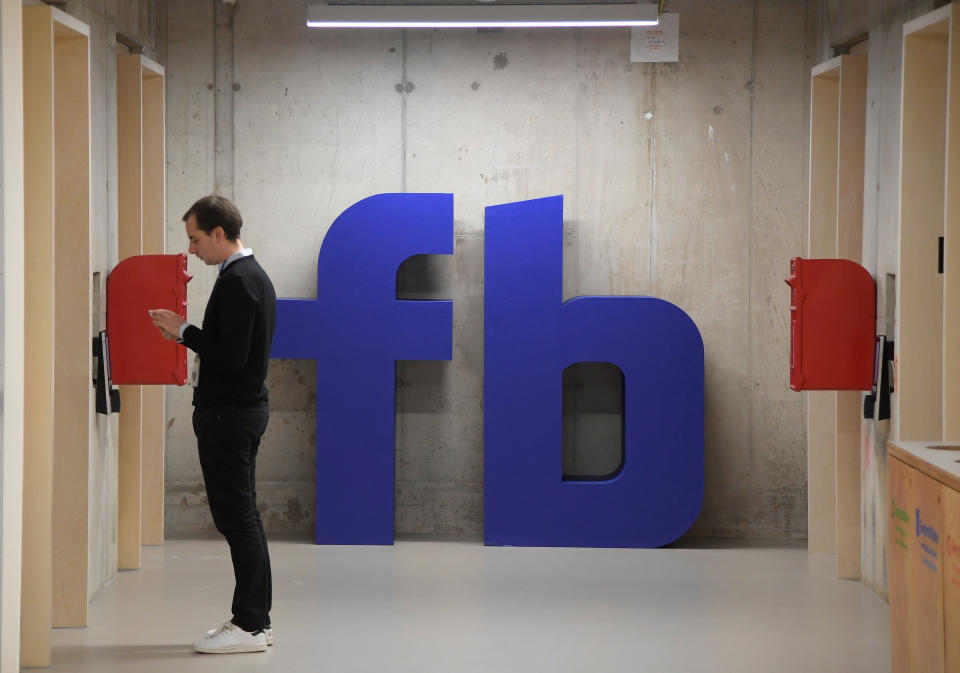Facebook faces these 4 challenges as it launches its own cryptocurrency
Facebook (FB) is set to enter cryptocurrency in a big way.
The social network plans on announcing a cryptocurrency on Tuesday called Libra, according to a report from Wall Street Journal last week, citing several anonymous sources familiar with the matter. Facebook’s stablecoin, which will be fixed to a basket of government-issued currencies to avoid pricing volatility, is backed by investors including Visa (V), Mastercard (MA), PayPal (PYPL), and Uber (UBER) and partners such as Stripe and Booking.com. But Libra faces many operational challenges around safety, security, and monetization. Facebook also must convey to potential users why Libra is worth using, given the crowded cryptocurrency space and the social network’s user privacy scandals over the last 18 months.
Here are the top 4 things Facebook needs to get right:
Explain why Facebook is entering cryptocurrency
Facebook will have to effectively communicate to skeptics why it’s launching a new cryptocurrency. But moreover, the social network must explain the cryptocurrency’s value proposition to potential users.
“They need to have convincing answers to questions like, ‘Why do I need a new token, if I could just use fiat — meaning the U.S. dollar — or Bitcoin?’” explains Dave Hendricks, CEO and founder of Vertalo, a stakeholder registry and compliance platform for regulated security token offering.
Facebook has not explained why it’s launching a stablecoin like Libra, but CEO Mark Zuckerberg said onstage at the company’s F8 conference this April that payments is one area where Facebook has an opportunity to “make it a lot easier.” Meanwhile, Facebook’s head of financial services and payments partnerships for Northern Europe Laura McCracken also told German magazine WirtschaftsWoche earlier this month that more would be revealed in a “white paper” on June 18.

Convince users Libra is safe and secure to use
Facebook’s branding could be a blessing or a curse, depending on how the social network handles Libra’s announcement and launch. Yes, Facebook is one of the most recognizable brands in the world. But it’s also no secret the brand has taken a beating over the last three years since the 2016 U.S. presidential election, when Russia used the social network as part of a larger strategy to meddle with the election results.
The social network also raised red flags with regulators over the last 18 months over lapses around user data privacy. Those lapses include the Cambridge Analytica scandal from March 2018, in which it was revealed that voting firm Cambridge Analytica gained access to the information of up to 87 million Facebook users without their consent.
“Although this is going to be really good for bringing mainstream awareness to cryptocurrency, they’re Facebook, and Facebook doesn’t exactly have the best brand right now, especially when it comes to privacy and personal data,” explains Bitcoin entrepreneur Erik Finman founder of the bitcoin investing platform CoinBits. “To me, that’s very scary.”
But if Facebook manages to convince even a fraction of its 2.4 billion monthly active users that Libra is a cryptocurrency worth using for transactions on- and off-Facebook, that’s already a sizable user base right there.
Figure out the wallet situation
Many coins have an official wallet — a digital wallet that lets users store, send and receive digital currency — and Facebook should be no different. However, some wallets are easier to use than others. The social network must design a wallet for Libra that’s every bit as easy to use for transactions as it is for Instagram users to post an Instagram Story or Messenger users to send a message.
“That's been one of the brick walls, or the speed bumps related to adoption [of crypto], is the difficulty and complexity of dealing with wallets,” says Hendricks. “So how does the wallet work? How is that going to bring them in?”
How do they make money?
Facebook, which makes money from targeted advertising through services like Facebook and Instagram, could certainly use another source of revenues, marginal as they may be. Although a TechCrunch report from earlier this month indicates Libra will have “zero fees” at launch, Finman and Hendricks are doubtful that will be the case in the long-term.
Facebook needs to figure out how it will monetize Libra, not just for its own benefit but also the benefit of backers like Visa, Mastercard, Uber, and PayPal — businesses that are all clearly expecting to eventually reap some sort of financial benefit.
Libra could eventually charge users a low, variable interchange rate per transaction similar to the way Visa and Mastercard operate, or it could deploy a flat-rate per transaction a la PayPal. Regardless, when Libra is announced, all eyes will be on this aspect — and how low Facebook initially goes with its rates to attract potential users.
Hendricks suggests once Libra hits a certain level of momentum and traction with users, Facebook could consider introducing — or even marginally increasing — rates to boost its revenues.
Follow Yahoo Finance on Twitter, Facebook, Instagram, Flipboard, SmartNews, LinkedIn,YouTube, and reddit.
More from JP:
